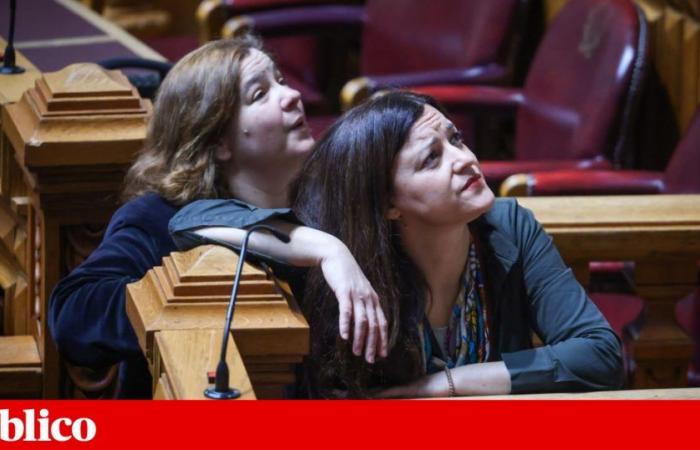What if Portugal raised the political parity threshold from 40% to 50%? The proposal was born from the “shock” with the last legislative elections that saw the representation of women in the Assembly of the Republic fall to 33%, the same value as in 2015.
Joana Torres has no time to waste. She teaches at the University of Trás-os-Montes and Alto Douro, at the University of Maia and at the Fernando Pessoa University, in Porto. But she was unable to swallow the results of the March 10 elections: only 76 women elected.
Starting from that “shock”, he contacted Maria Helena Santos, researcher at the Center for Research and Social Intervention, the Psychology Research Unit at Iscte, which is part of the Lisbon University Institute. Maria Helena Santos has long focused on issues related to politics and gender.
Maria Helena Santos suggested that they convene other women in the field of gender studies and politics. Alexandra Silva, Ana Cabrera, Ana Espírito-Santo, Ana Ribeiro, Carla Cerqueira, Carla Martins, Cláudia Múrias, Edna Costa, Maria Antónia P. Almeida, Rosa Monteiro immediately responded to the call.
It was the starting point of the Movement for Political Parity in Portugal. They wrote a manifesto addressed to the President of the Assembly of the Republic and several members of the Government.
In the document, they do not simply propose that the parity threshold rise to 50%. They suggest that “a mechanism for closing eclair‘ true in the ordering of the lists, with equal alternation every two places (‘1+1’), increasing the possibilities of electing women”. And “a regime that requires parity in the composition of national governments, in ministerial teams, State secretariats and other political appointment positions”. In addition, they want “a methodology to monitor the Parity Law” to be adopted, creating an “independent commission that, every four years, presents to Parliament a technical report on the implementation and evolution of the said law”.
The manifesto seeks to dismantle the retreat in a country that established a 33% quota in the lists for the European Parliament, the Assembly of the Republic and local authorities in 2006, increasing it to 40% in 2019. “The problem with parity is, largely, in the parties’ recruitment and selection models”, they diagnose. “If, on the one hand, they invoke ‘supposed difficulties’ in recruiting women, on the other hand, they systematically place them in less eligible positions, that is, in 3rd, 6th, 9th.”
As if they were already seeing the criticism emerging, they justify: “Women make up more than half of the population and cannot continue to be deliberately removed from political decision-making positions: they have the same potential to assume decision-making and policy-execution functions ; have higher levels of education; and have been systematically left out.” “We refuse to accept that they continue to place the burden of blame for their non-involvement in politics on women, under the argument that they do not adapt to the structures or are not interested in political participation”, they write.
The text of the manifesto is used, in full, in a petition. “We are asking people to sign”, says Maria Helena Santos. “We have already reached 744 signatures. We have to have a thousand to have a hearing and more to take the issue to Parliament.”
Among the subscribers are activists such as, for example, Leonor Valente Monteiro, general coordinator of the Associação Projecto Criar, Liliana Rodrigues, president of UMAR, Margarida Medina Martins, director of the Associação Mulheres contra a Violência, Graça Rojão, Coolabora coordinator. And public figures such as journalist Anabela Mota-Ribeiro, radio host Ana Markl, researcher Lígia Amâncio.
The manifesto must be sent this Wednesday, April 24, 2024, to the president of the Assembly of the Republic, the minister of Parliamentary Affairs and the minister of the Presidency of the Council of Ministers. The signatories ask you to be kind enough to pass this on to the other Government bodies. And give them hearings to discuss the proposals.
“We will continue to collect signatures”, says Maria Helena Santos. Only with a thousand signatures can they be heard by deputies (hearing of petitioners) in committee and the petition can be published in the Gazette of the Assembly of the Republic. With 2500 they have the right to have it debated in the competent committee. Only with 7500 and a favorable report will it be considered in the plenary session.
Tags: Women politics petition raise parity threshold Law parity
--





